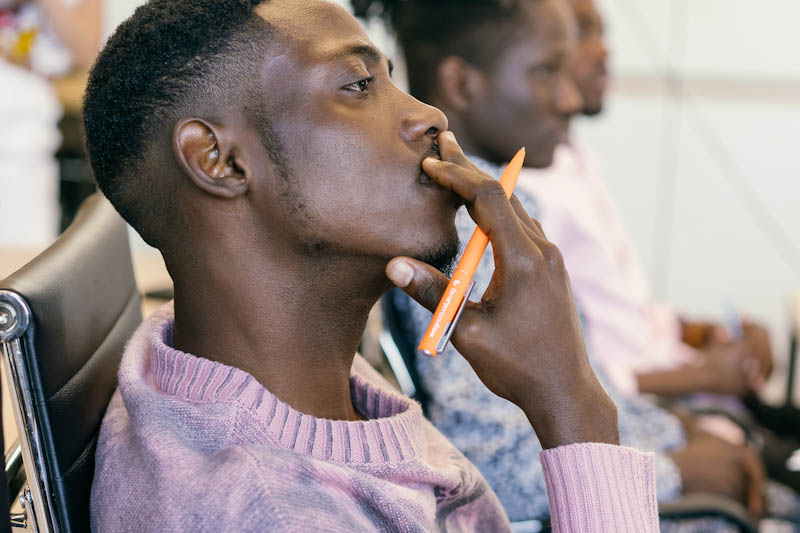More People Are Getting Sober Young. Here’s Why That’s Smart
Why wait to launch a life of satisfaction, success and well-being? Some tips on getting sober and getting started

You’d be surprised how many people in recovery groups have not yet turned 21. Addiction is a progressive disease, sure, but some people progress pretty quickly. A disastrous blackout from alcohol or a fentanyl overdose are terrifying experiences that can happen at any age. But there’s also this: Today’s social climate makes room for going “sober curious,” feeling emboldened to opt out of substances or even living sober and proud.
No one wants to start adulthood on the wrong foot, but if you’re young and struggling with substances, you can turn this thing around. Early intervention and treatment have always been among the best ways to avoid experiencing the worst of substance use disorder (SUD).
Young people are exceptionally resilient, and when you’re young, you’re likely open to new ideas about improving your life, including addiction recovery. If you prioritize your happiness and health, you can take advantage of the many resources that will help you get to successful sobriety.
Recovery Tailored to Young People
That’s not to say recovery is easy, and young people do face unique challenges when attempting it. Today, though, there are young adult–specific treatment programs that can reduce your risk of relapse. Not all young people can afford to enter clinical programs at treatment centers. However, many low-cost or free support resources exist to help you find healthy ways to overcome substance use issues.
Treatments and services that cater to young people provide essential peer support and healthy social engagement. “Young adults in recovery from SUDs can benefit from a variety of support services” that fit their specific needs, according to research published in the journal Pediatrics, which explores some of them.
Some of the most common treatment options include:
- Collegiate recovery and support programs
- 12-step meetings specifically for young adults
- Online support forums, groups and sober social media communities
- Resources at local clinics and college health centers
- Psychiatrists, psychologists and counselors with experience treating young people who are trying to overcome substance use
- Free or low-cost medical clinics that offer addiction recovery services
You’re smart to check out any of these options or others available to you. By trying out the various sober groups, communities and services in your area, you can find which ones click with what you need in your life.
Getting Sober Young Has a Ton of Upsides. Plus, Everyone’s Doing It
If you’re having bad experiences with drugs and alcohol now, you don’t need to wait for your health or personal life to get worse before you get help. We can’t stress that enough. Your lifestyle in early adulthood can obviously affect your mental and physical health in later life, but if it’s a problem now, that’s reason enough to kick this thing.
It’s normal to feel like you’ll “miss out” on something if you cut out drugs and alcohol early in life, but missing out on the joys of being, say, 24 years old because you’re fighting substance problems is decidedly worse.
It’s not hard to find fun and fulfillment sober. Plenty of young adults recognize the importance of healthy living; more and more are snubbing drug-fueled parties or avoiding binge use. There’s a reason “sober curious” is a trend driven by young adults. Want proof? A 2020 study established that alcohol use disorder among college-aged adults had halved since 2002, with abstinence climbing toward 30%. Even newer surveys show that that trend continues, with rates of use dropping for most other drugs as well. Sobriety is pretty common these days!
If you’ve had substance issues but now prefer to join the sober squad, there are a number of ways you can keep your well-being on point while working on that goal:
- Monitor your physical and mental health, and get professional assessments if you notice unhealthy changes
- Practice self-care and make healthy life choices
- Avoid situations and social groups where there’s a lot of stuff being passed around
- Develop and lean on a support network of people who love you and want you to thrive
Taking steps to overcome addiction improves life skills, self-confidence and self-efficacy. Recovering from substance use issues can help you feel more motivated to pursue your passions. Getting sober early makes it easier to avoid falling into maladaptive behaviors later in life. You will also, of course, significantly reduce the risks that come with excessive substance use later on, including heart disease and cancer.
Is It Easier To Get Sober Young — Or Harder?
Many people find it easier to move forward after recovering from substance use issues and addiction if they get help early. Your body can withstand more and recover faster when you’re young, which can reduce the side effects of SUDs. You have, or feel you have, more time to get on with your life.
Yet despite the advantages, many don’t or can’t find help. According to the National Survey on Drug Use and Health, adults in the 18 to 25 age cohort are the likeliest to have a substance use disorder. It’s not “easy” to get sober after addiction at any age, but you may save yourself from other troubles and traumas that are more likely to happen during substance use: risky or criminal actions, mental health disorders and sexual or physical abuse, among others.
If you struggle with substance use, getting sober — via professional addiction treatment if necessary — is the best way to help yourself avoid further pain.
I’m Ready To Try Sobriety. What Resources Are Out There?
There are lots of online and in-person resources to help young people get information and treatment for substance issues. Some people, organizations and groups that can support long-term recovery include:
- School counselors and therapists
- Community-based treatment and recovery programs
- Support groups, including 12-step programs
- Telehealth options through health care providers
- Programs for teens and young adults at addiction treatment centers
You can work with your family, other people who care about you or a health care provider to find the best fit for your situation.
Finding Fulfillment in Sober Life
In the past five years or so, more and more celebrities, social media personalities and young communities have embraced the sober lifestyle. Sober curious folks may dabble in attending self-help meetings or therapy as a way to ease into sobriety. Or they may simply opt to take a hike, go to the beach, volunteer — all great activities to stir the sober soul.
Make positive memories, plan for the future, achieve your goals or simply allow yourself to have fun on your own terms. Your whole life is ahead of you.
If you’re having trouble getting into that mindset, that’s OK. You can start with this one: No one, young or old, needs to be told that there’s enough struggle in the world. Young or old, you can make substance use one less thing to struggle over.
More Help & Information
Does the 'Pink Cloud' of New Sobriety Help or Hurt? It's Complicated
The euphoria of early recovery may be fleeting, but long-lasting balance is the goal. Here's how to keep your head up through the process and handle reality with confidence.
Sobriety vs. Recovery: What's the Difference?
Are the concepts themselves up for debate? Do they require certain treatments, or abstinence from everything? It's complicated! And new ways of thinking are changing the conversation.
Now Elite NFL Players, They First Tackled Addiction | News Roundup
All Sober compiles the best of the latest headlines. Here's your addiction and recovery news for the week of Feb. 19, 2024!
Help Them Help You: Explaining Your Mental Health to Your Family
Your mental health can affect — and be affected by — your loved ones. Here's how to discuss it with them so everyone can heal.
Dry January (and Beyond): The Possibilities Are Endless
There's never been a better time to go sober. Whether you're trying it out this month or already living the life, join us for some tips, ideas, inspiration — and maybe even new friends.
Sober Holiday Tips: Meeting 'Share-a-Thons'
Need to get out of the house for a bit and see some friendly sober faces? Recovery support group meeting marathons run 24/7 from Christmas Eve through New Year's Day.
What Happens After an Intervention?
Your loved one agreed to get treatment for addiction during their intervention — or not. Here's what you need to know about what comes next.
We're in This Together: Building a Healthy Sober Support Network
You are the captain of your recovery, but you don't have to do it alone. A sober support network will lift you up in tough times and celebrate your triumphs.











